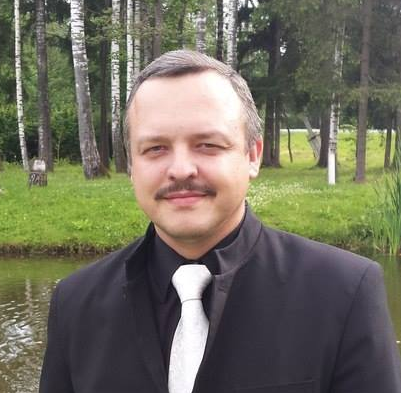How Far Do We Go to Reach Souls?
by Eugene Gerasimov, 03/23/2017
Right now more than 2000 evangelistic crusades are wrapping up in the Euro-Asia Division (roughly the territory of former USSR). This massive project was dubbed “Europe and Asia for Christ”.
As I mentioned in a previous article on the AT website, there’s a big difference in the response to evangelism in this region, vs. places like Rwanda or Zimbabwe where thousands of people are regularly baptized in evangelistic crusades. The problem here? Lack of interest. This is a secular culture, and few visitors (sometimes none at all) attend our meetings, no matter how many invitations we distribute. That’s partially because people today can find any kind of information (including religious) on the internet. Who needs a church when we have Google? So contemporary evangelists have been forced to seek creative new ways to invite people.
Perhaps we have to accept lotteries for valuable items when it serves the good cause of reaching unchurched people. But it does raise questions we must think about carefully.
In the early 1990s just a free Bible was enough to bring hundreds, even thousands, to outreach events. We had just come out from under the officially-atheist communist government, and there was a hunger for information about religion. Back then you couldn’t download a free Bible to your phone or buy one in a bookstore as you can now. So the Bible had immense value in people’s eyes. Most had never held a Bible in their hands, much less read it, and they were ready to register for Adventist programs, attend every meeting, and fill out a visitor’s card with their contact information just to get, at the end of the series, their very own Bible. Many who came only to get a Bible found themselves attracted to the in Adventist message and were baptized.
But as we began a new century, a free Bible wasn’t enough. Our evangelistic attendance began to drop. 21st century evangelists tried to find new “fish hooks” to catch converts, though none of them worked as well as the free Bible had in the 1990s. We offered large, illustrated books, like The Desire of Ages and The Great Controversy. We tried music CDs, and DVDs of Christian films, and even packs of the garden fertilizers developed by Dr. Mittleider, an Adventist agriculturalist well-known in Russia. As this dearth of attendees stretched on, pastors learned how to draw people to our Biblical meetings with lectures on other topics, such as healthy lifestyle, family happiness, and so forth. Today our doctrinal meetings generally follow these lectures on other topics.
In some areas, evangelists have come up with a new method. Rather than offering the usual Adventist literature or DVDs, these advertise by offering things that have no real connection with religious topics. Some, such as a recent meeting in Kharkiv, Ukraine, offered groceries to attendees. 17 people were baptized.
In an attempt to attract young people who are unlikely to attend a church seminar, some meetings offer regular attendees the opportunity to be entered to win cell phones, cell phone power banks and USB flash drives by means of a lottery (also called, depending on where you live, a raffle, drawing, or tombola). This approach, which resembles games of chance, has raised some questions. Euro-Asia Division leaders, however, anticipated them. Of a crusade in Energodar, Ukraine, the website explained that these lottery prizes had a purpose. On the cell phones were installed apps for the Bible, the Sabbath School lesson, and Voice of Hope. The USB flash drives were filled with doctrinal messages and Christian music from the Hope Channel.
Ellen White mentions lotteries in churches as a sign of Christianity’s becoming worldly. In The Great Controversy she quotes the annual message of Governor Washburn of Wisconsin in 1873: “Even the church (unwittingly, no doubt) is sometimes found doing the work of the devil. Gift concerts, gift enterprises and raffles, sometimes in aid of religious or charitable objects, but often for less worthy purposes, lotteries, prize packages, etc., are all devices to obtain money without value received. Nothing is so demoralizing or intoxicating, particularly to the young, as the acquisition of money or property without labor” (page 387). Adventist teaching has always warned against games of chance.
Perhaps we have to accept lotteries for free phones, flash drives, power banks or other valuable items when it serves the good cause of reaching unchurched people. Perhaps we need things more valuable than free leaflets, books and Bibles. Maybe we’ll have to use IPhone 7s or Samsung Galaxy 7s to fill our meeting halls with people.
But I believe that inviting people to participate in lotteries or receive free groceries in order to get them to listen to the gospel raises ethical questions we must think about carefully. When in the Middle Ages people were invited to pay for salvation, Martin Luther stood against the indulgence-seller Tetzel. While it’s not quite the same thing, it could be said that our evangelists are paying (in a different way) to get people to come to listen to the message of salvation.
It troubles me that we have to “add value” in this way to our message. Isn’t salvation valuable enough by itself anymore?
Picture: A full-color flyer for Adventist meetings in Chervonohrad, Lviv Oblast, Ukraine. The title is “There is a hope for everyone.” Mentioned is food distribution, and prizes like a cell phone, USB flash drives and power banks.
 Eugene Gerasimov is the pastor of the Orsha and Baran Seventh-day Adventist congregations in the Vitebsk region of Belarus, a former Soviet country.
Eugene Gerasimov is the pastor of the Orsha and Baran Seventh-day Adventist congregations in the Vitebsk region of Belarus, a former Soviet country.




